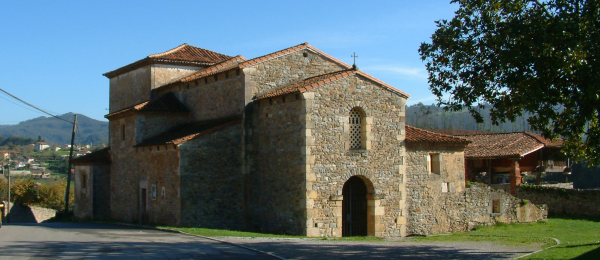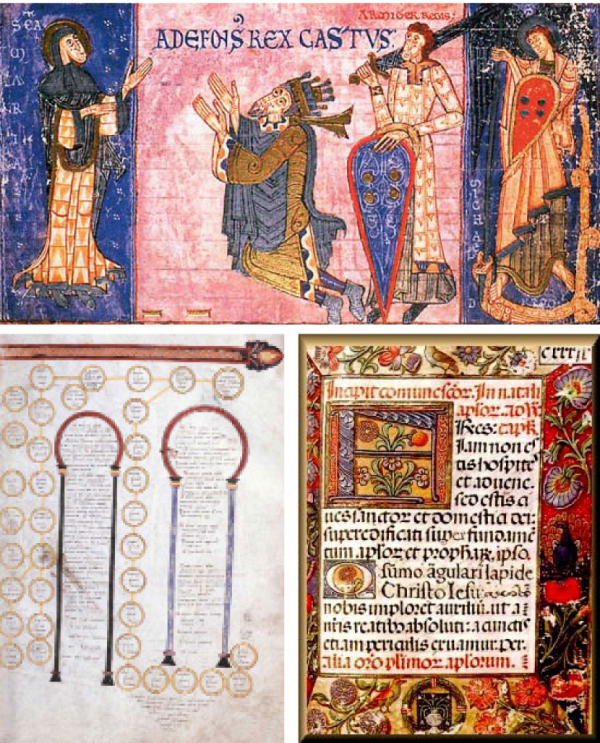KINGDOM OF ASTURIAS

In the year 774, King Silo moved the small court of the emerging Kingdom of Asturias to Pravia, where it remained until 792. King Silo and his wife, Queen Adosinda, built in Pravia the first church of Asturian pre-Romanesque, the church of Santianes. The great Beatus of Liébana knew in Santianes in the year 785 the letter in which Elipando, Archbishop of Toledo, accused him of heresy for defending the divinity of Christ, thus initiating in Pravia the theological battle of Adoptionism that shook Christendom and was put to an end many years later by Emperor Charlemagne, before whose court Beatus of Liébana appeared as an ambassador of King Alfonso II the Chaste, nephew of King Silo's wife, Queen Adosinda. Beatus, called of Liébana because this was his origin, managed to have both the all-powerful metropolitan of Toledo, Elipando, and his fellow prelate Félix, Archbishop of Urgell, declared heretics throughout Christendom, and the church of the Christian kingdom of the northern peninsula became independent of the mandates of the Primate of Hispania. Beatus of Liébana also wrote in Pravia the book "Commentaries on the Apocalypse" of Saint John, considered one of the most influential writings throughout the Middle Ages in Europe. It is a compilation of theological texts of the early fathers of Christianity, to which the monk of Lieban origin had access thanks to the support of the successive Asturian kings. Today these codices, illuminated in the best scriptoriums of medieval convents throughout Europe, are known as "Beatus". He also wrote the prayer "Oh, Deu Verbum" that initiates the veneration of the Apostle James as the patron saint of Christian Hispania and that led, years later, during the reign of Alfonso II (nephew of King Silo), to the pilgrimages to Santiago de Compostela and the beginning of the Camino de Santiago, so the true origin of the Camino de Santiago can be attributed to Beatus and Pravia.




